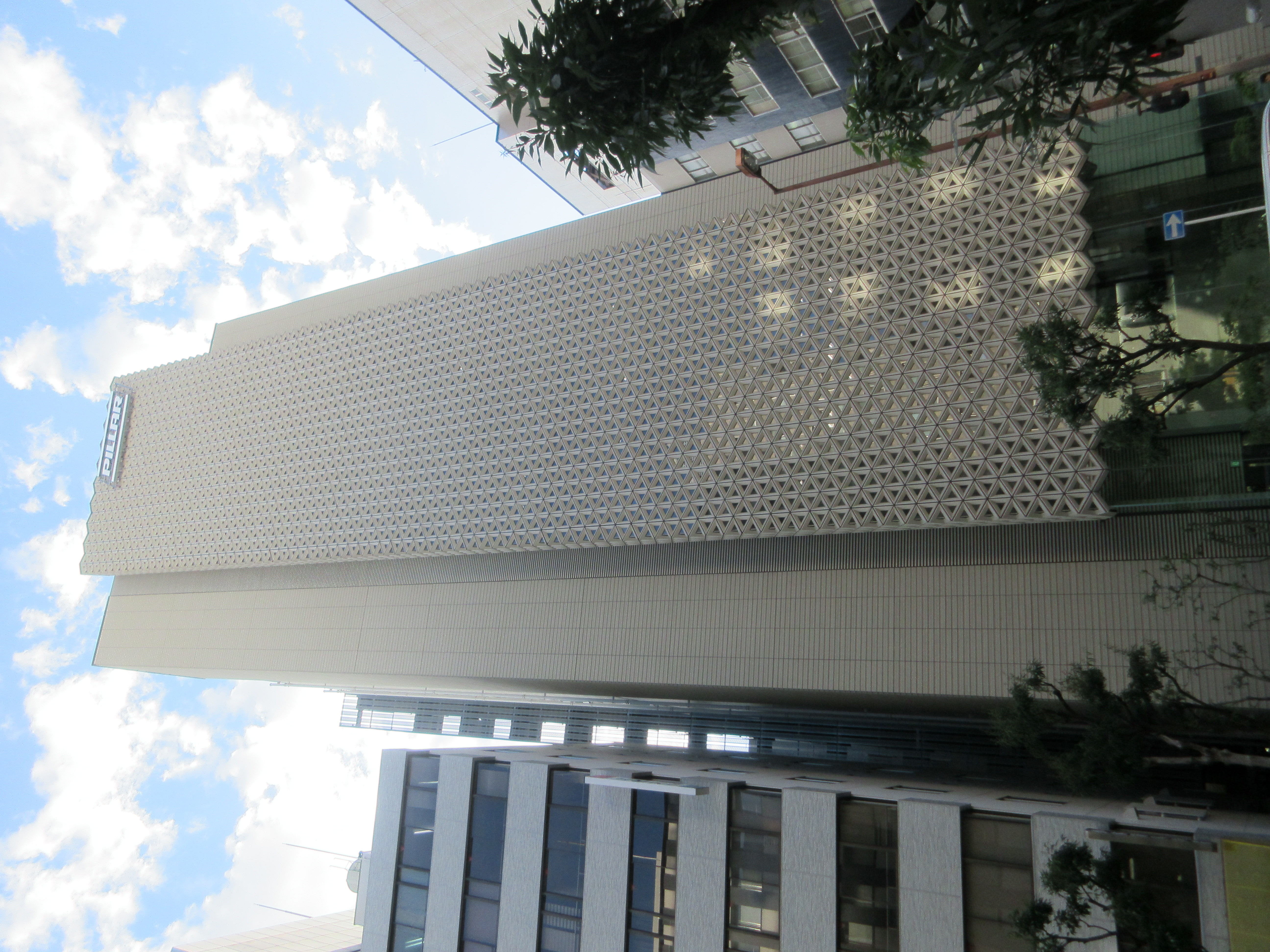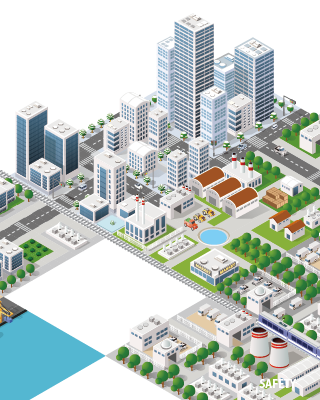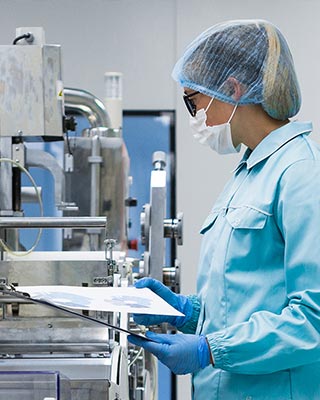Initiatives for a Decarbonized Society
Based on the PILLAR Group Environmental Policy, we recognize that environmental issues such as climate change are a challenge common to all humankind. The PILLAR GROUP is also aware of its social responsibility as a corporation, and as a good corporate citizen, we are actively working to preserve the global environment. Particularly by contributing to reduced CO2 emissions from our business activities, and via our products and services, to reduced greenhouse gas (GHG) emissions from society as a whole, we are aiming for the sustainable development of society and the Company to realize a Decarbonized Society.
Transition Planning for a Decarbonized Society
■CO2Emission Reduction Targets
To help accomplish the goals of the Paris Agreement, with fiscal 2023 as a reference point, the PILLAR GROUP has set the goal of virtually zero emissions by fiscal 2050. With a view to achieving these goals, we are undertaking the phased implementation of specific measures such as promoting energy-saving activities and introducing renewable energy.
| Reference year: | FY2023 (14,861 t-CO2) ※Scope 1+2/Consolidated |
|---|---|
| Short-term goal: | Reduction of at least 25% in CO2 emissions by FY2025 compared to FY2023 |
| Medium-term goal: | Reduction of at least 50% in CO2 emissions by FY2030 compared to FY2023 |
| Long-term goal: | Virtually zero CO2 emissions by FY2050 |
Regarding the goal of reducing Scope 3 emissions, we are improving our communications with suppliers with the aim of formulating measures to reduce Category 1 emissions (purchased goods), which are the most significant at the PILLAR GROUP.
■Road Map for Achieving Carbon Neutrality
We are planning specific measures in accordance with short-, medium-, and long-term timelines for achieving virtually zero CO2 emissions by 2050.
In addition to ongoing initiatives such as energy-saving activities and the upgrading of facilities, our aim is to reliably reduce emissions through a phased approach that includes expanding the introduction of renewable energy, switching away from fossil fuels, and ultimately utilizing carbon credits.
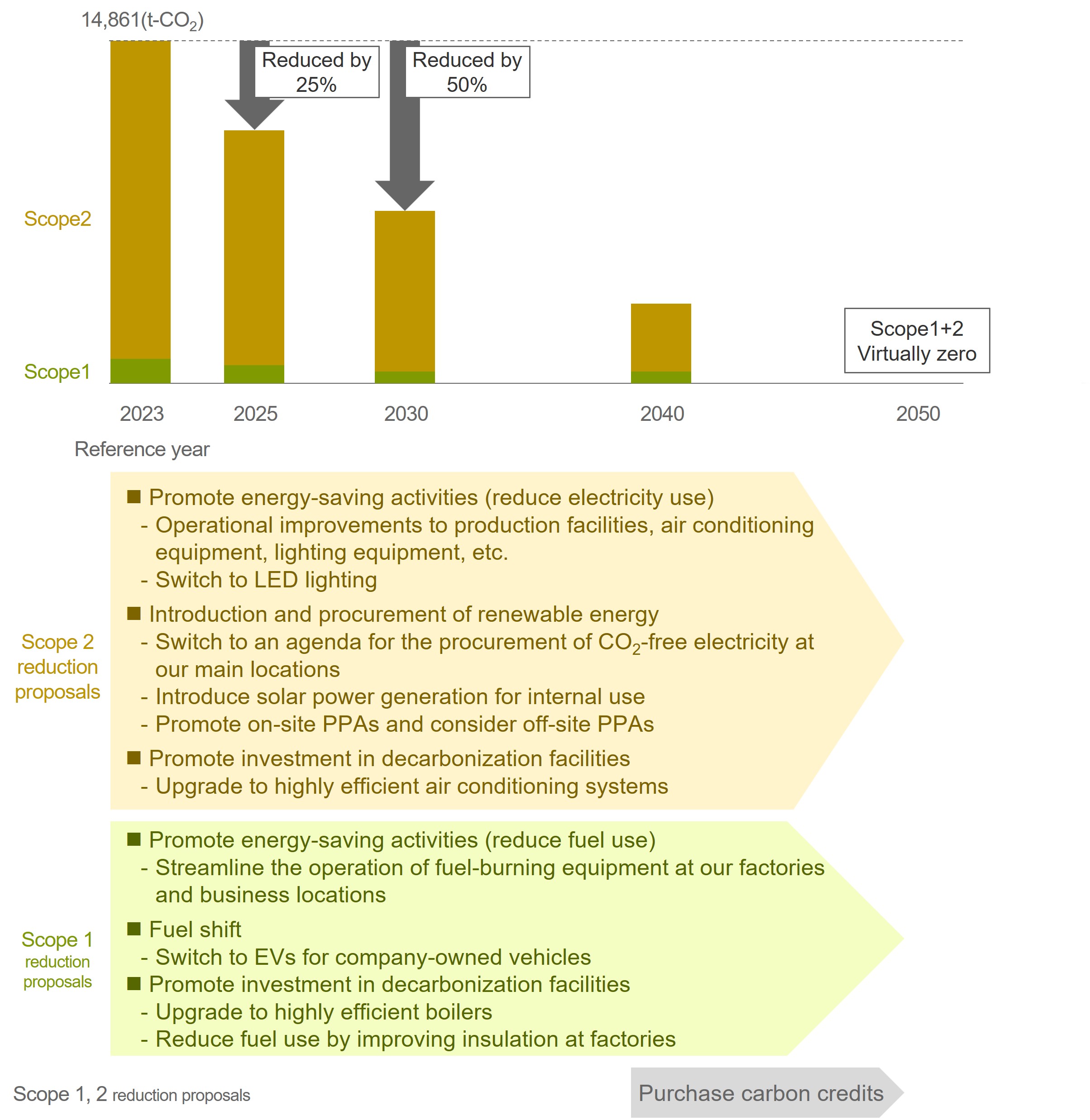
■Current Status of Progress
The PILLAR GROUP’s CO2 emissions in fiscal 2023 were 14,861 t-CO2. As well as the scope of calculation changing with the acquisition of TANKEN SEAL SEIKO CO., LTD. by the Group, CO2 emissions increased compared to the previous fiscal year due to the increase in emissions factors by electric utility. However, we have steadily implemented carbon-neutrality measures at all business sites, for example, through energy-saving activities, the full-scale operation of solar power generation for internal use, and the increased procurement of CO2-free electricity. In fiscal 2024, we began the full-scale operation of solar power generation for internal use at two new locations, thereby increasing the ratio of renewable energy that we use.
For information about progress with the PILLAR GROUP’s CO2 emissions, see our Sustainability Data Book.
Specific Initiatives for Decarbonization
■Energy-Saving Activities
The PILLAR GROUP is actively promoting energy-saving activities with the aim of optimizing energy use and reducing energy wastage at all business sites. We are implementing a wide range of measures, from day-to-day energy-saving activities such as operational improvements at production facilities, upgrading to highly efficient equipment, switching to LED lighting, and the optimized operation of air conditioning equipment, to medium- and long-term initiatives associated with investing in facilities.
■Introducing Renewable Energy
As an important step toward reducing CO2 emissions, we are actively advancing the introduction of renewable energy. We have installed and are operating solar power generation for internal use in five buildings at four factories, including our Sanda and Fukuchiyama factories. We have also expanded our adoption of an agenda for the procurement of CO2-free electricity, and we are seeking to increase the ratio of renewable energy that we use.
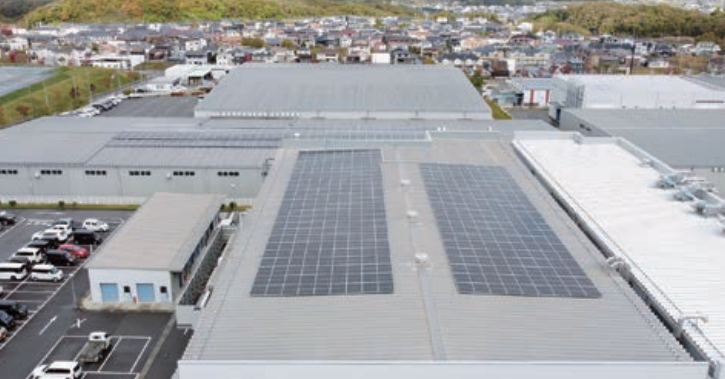
PILLAR Precision Corporation 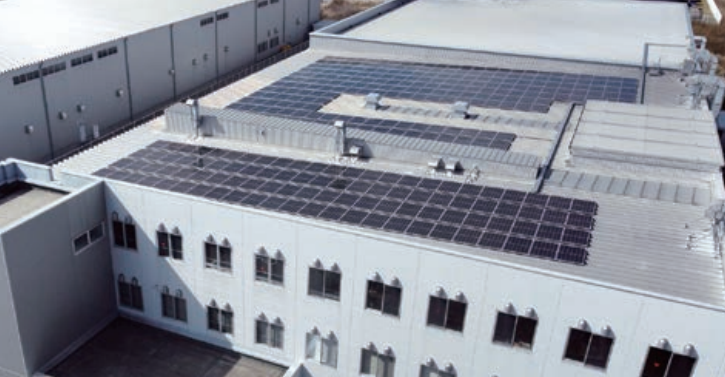
NP Kogyo Corporation
■Internal carbon price system
At the PILLAR GROUP, we are introducing an internal carbon price system with the objectives of promoting low-carbon investment and strengthening our response to climate change risks. Having set a carbon price of 9,200 yen/t-CO2 (as of October 2021), we have visualized the future costs associated with CO2 emissions in the decision-making process for facilities investment and business planning. With this system, we are encouraging decisions to invest in energy-saving facilities and renewable energy equipment, and promoting decarbonization in the medium- and long-term. Going forward, we will set an appropriate carbon price and operate the system while closely monitoring carbon price trends in Japan and overseas.
Initiatives Throughout the Supply Chain
■Calculation and Reduction of Scope 3 Emissions
In addition to the Group’s direct (Scope 1) and indirect (Scope 2) emissions, we are advancing the calculation and management of emissions throughout the supply chain (Scope 3). Our Scope 3 emissions in fiscal 2023 were 149,077 t-CO2, an increase on the previous fiscal year. In addition to the scope of calculation changing with the acquisition of TANKEN SEAL SEIKO by the Group, this increase was due to the impact of consumables and fixed assets related to newly constructed factories. Particularly because Category 1 (purchased goods and services) accounts for over 60% of our Scope 3 emissions overall, we are prioritizing reduced emissions by collaborating with our suppliers. Going forward, we will improve the accuracy of calculation and take steps to reduce emissions, thereby promoting decarbonization throughout the supply chain.
■Collaborating with Stakeholders
At the PILLAR GROUP, we believe it is essential to work on tackling the problem of climate change across the entire supply chain. We are engaged in dialogues and collaborations with various stakeholders such as customers, suppliers, and local communities, and we will coordinate with these stakeholders with the goal of achieving virtually zero CO2 emissions by fiscal 2050.
■Dialogues and Collaborations with Suppliers
In order to work throughout the supply chain in response to the demand for realizing a sustainable society, we have established and are operating the PILLAR CSR Procurement Guidelines, which streamline procurement between the Group and our suppliers. We have also highlighted items related to environmental conservation, which include activities for achieving CO2 reduction goals, so that we can also work in cooperation with suppliers to tackle the problem of climate change.
[PILLAR CSR Procurement Guidelines 3. Items Related to Environmental Protection]
a) Measures and initiatives to achieve reduction targets for CO2 emissions
With the recognition that protection of the global environment is the most important issue of common relevance to all human beings, we shall actively promote environmental initiatives as an essential condition of our corporate operations.
b) Initiatives for voluntary inspection of chemical substances
We shall take steps to improve our environmental performance and appropriately manage environmentally hazardous substances.
c) Disseminating Green Procurement Standards
We shall formulate green procurement standards and communicate them to the manufacturing sites.
d) Evaluating the status of initiatives and providing feedback on improvements
We shall evaluate the status of our business partners’ initiatives, provide feedback, and make an effort to suggest improvements.
e) Compliance with international standards as well as laws and regulations
We shall actively comply with ISO 14001, REACH regulations, RoHS directives, and other relevant standards.
Once a year, we hold business partner policy briefings to engage with our suppliers. During these briefings, we explain matters such as policy relating to CSR procurement and to quality, summarize the climate change problem and explain the Group’s initiatives to address it, and provide details of calculating Scope 1, 2, and 3 emissions. We also endeavor to improve understanding of climate change and GHG calculation. Since fiscal 2021, we have conducted an annual questionnaire on CSR procurement aimed at our major business partners.
This enables us to understand the status of their CSR activity systems, compliance with laws and regulations, human rights, and environmental conservation. In relation to the latter and among other things, this questionnaire is a way of checking the status of initiatives for reducing greenhouse gas emissions. We also provide support for those business partners who conclude that ‘improvements are necessary’ in response to the most important items in the questionnaire.
Policy Engagement
■Activities via Industry Organizations
The PILLAR GROUP is in the Japan Society of Industrial Machinery Manufacturers (JSIM), whose member companies manufacture industrial machinery used primarily in factories. JSIM proposed a target for fiscal 2030 of reducing CO2 emissions from domestic manufacturing by 10% compared to fiscal 2013, and achieved a 21.3% reduction in the ten years from fiscal 2013 (‘Environmental Activities Report 2023,’ JSIM). In order to contribute to measures that will combat global warming on a worldwide scale in future, it has adopted policies for advancing proactive energy-saving activities and the utilization of renewable energy.
As a JSIM member company, we cooperate with the regular surveys that it conducts, and provide environmental data relating to energy consumption, CO2 emissions, and so on, and information about initiatives for reducing such emissions. We also actively participate in the JSIM Environment Committee, and assist in promoting initiatives to reduce the environmental impact of the industry as a whole. In particular, our ambitious goal of reducing CO2 emissions by at least 50% by fiscal 2030 compared to fiscal 2023 exceeds the JSIM’s own targets, and we are sharing information about this as an example of a progressive initiative within the industry.
Products and Technologies that Contribute to Realizing a Decarbonized Society
■Development and Sales Targets for Environmental Contribution Products
The Group is committed to expanding development and sales of environmental contribution products to meet societal needs for energy conservation and the utilization of clean energy. Sales of these products in fiscal 2023 were 2.6 billion yen, and our goals for fiscal 2025 and 2030 are 3.1 billion yen and 6 billion yen respectively. These products are characterized by their energy efficiency, resource conservation, and longer operating life, through which they help reduce the environmental impact of our customers’ business activities. In future, we will continue to promote technological innovation, to accelerate the development and market launch of products with greater environmental performance, and to strengthen our initiatives toward realizing a decarbonized society.

■Introducing Our Key Environmental Contribution Products
The PILLAR GROUP’s environmental contribution products are characterized by unique features that leverage our fluid control technologies, and help to mitigate environmental impact in multiple industrial fields. One of our circulation products is the Sweep Elbow. Its round flow path reduces pipe resistance, thereby realizing equipment and devices that save energy. EDP Packing achieves high airtightness and contributes to environmental protection by conforming with the stringent requirements of both global and industry standards.
The noncontact structure of our gas seals grants an energy-saving effect through low power consumption and long operating life. Our PSCC mechanical seals eliminate the need for an auxiliary circulation device thanks to their internal pumping function. They also realize a 14 metric ton reduction in annual CO2 emissions and a 70% reduction in the space required for installation. As well as helping to improve environmental performance in customer facilities and equipment, these environmental contribution products play a key role in technological innovation for realizing a decarbonized society. Going forward, we will continue to promote product development with an awareness of market needs and environmental issues, and to further add to our lineup of environmental contribution products.
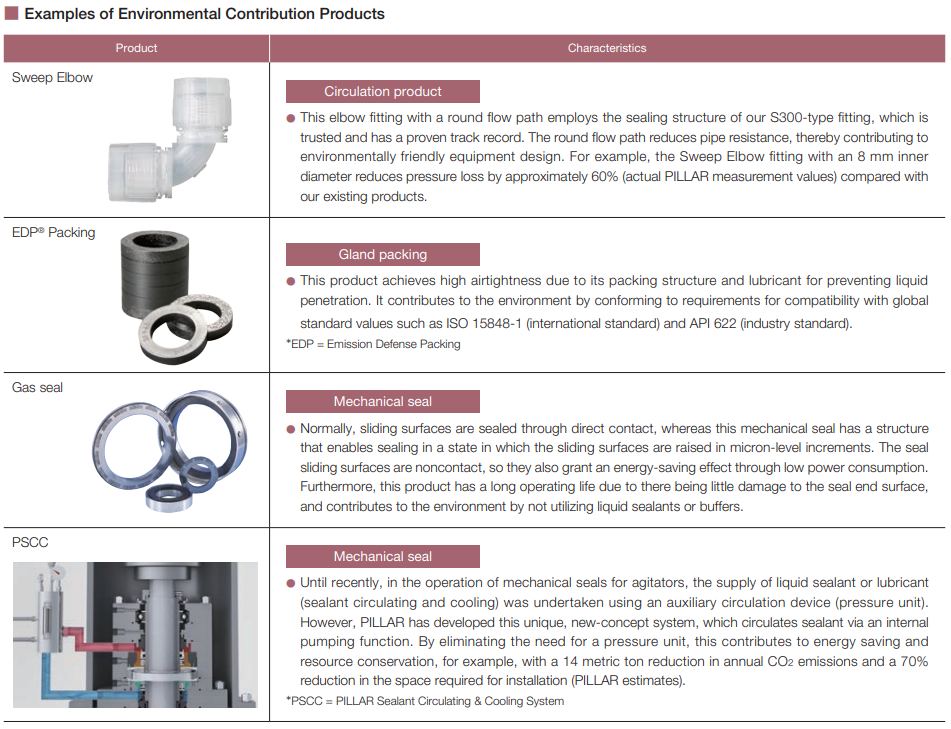
■Strategic Approaches Based on Scenario Analysis
Bearing in mind the results of scenario analysis conducted based on TCFD Recommendations, the Group has formulated the following strategic approaches for responding to risks and opportunities caused by climate change. These approaches have been formulated with consideration for both the 1.5–2°C and 3–4°C scenarios, and our goal is to build a structure that will be able to maintain and strengthen the sustainability and competitiveness of our businesses in the event of either scenario. We will continue to conduct scenario analysis in a timely fashion going forward, and to review strategy in response to changes to the external environment.
- [Product Strategy for the Automotive Market]
- We are promoting the following strategies to respond to the decreasing number of vehicles fitted with internal combustion engines due to the EV shift.
- •Short term (until 2025):Strengthen competitiveness by improving the performance of existing exhaust system parts and making them more lightweight
- •Medium term (until 2030): Accelerate the development and launch of new products for EVs, etc.
- •Long term (until 2050): Switch to a product portfolio that is compatible with vehicle electrification
- [Product Strategy for the Energy Market]
- We are promoting the following strategies in order to respond to the shrinking petrochemical market and the expanding clean energy market.
- • Short term (until 2025): Enhance sales of products for sustainable aviation fuel (SAF) refineries and utilize our existing customer base in the ammonia market
- • Medium term (until 2030): Technological and market development of products focused on clean energy sources such as hydrogen, ammonia, etc.
- • Long term (until 2050): Develop technologies and participate in verification projects related to clean energy
Investment Planning
In order to steadily implement transition planning for realizing virtually zero CO2 emissions by fiscal 2050, the Group’s policy is to undertake phased, systematic investment. We regard investment for responding to climate change as an important management issue in terms of both the Company’s sustainable growth and social responsibilities, and we are working on this from a medium- to long-term perspective.
| Investment related to energy saving | Upgrading to highly efficient facilities and equipment (production, air conditioning, and lighting equipment, etc.) |
|---|---|
| Investment related to renewable energy |
|
| Investment in research and development | Strengthening the development of environmental contribution products (energy-saving and carbon-neutral contribution products) |
Disclosing Climate-Related Information
The Group is appropriately assessing and managing risks and opportunities related to climate change, and as well as reflecting these in management strategy, we believe it is important to disclose information to our stakeholders in a highly transparent way. By disclosing information based on TCFD recommendations and responding to the CDP, we are actively disseminating our climate change initiatives and encouraging dialogues with stakeholders.
■CDP Score
In fiscal 2025, we disclosed information via the CDP questionnaire and received a A- score(leadership level) in the fields of climate change and a B score (management level) in the fields of water security. Going forward, we will continue to make our initiatives related to climate change and the conservation of water resources more sophisticated, to strengthen their disclosure, and to further improve the disclosure of environment-related information.

